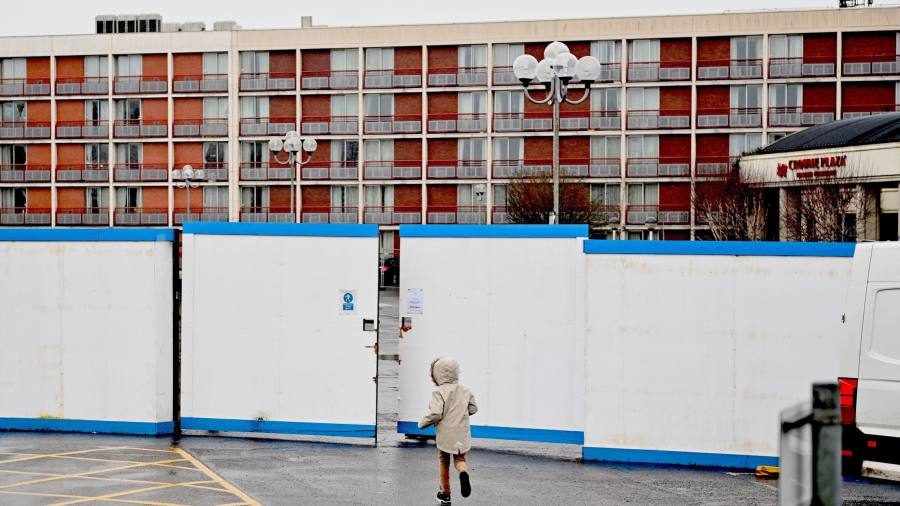Receive free UK immigration updates
We’ll send you a myFT Daily Digest email rounding up the latest UK immigration news every morning.
The UK government’s policy of “routinely” housing unaccompanied child asylum seekers in hotels is unlawful, the High Court in London ruled on Thursday, in a fresh blow to Prime Minister Rishi Sunak’s plans to curb immigration.
Mr Justice Martin Chamberlain said in a judgment that the practice, first introduced in 2021, had become unlawful because it was no longer being used only for “very short periods in true emergency situations”.
“It cannot be used systematically or routinely in circumstances where it is intended, or functions in practice, as a substitute for local authority care,” he said, voicing concern about the policy’s impact on some children’s safety.
The ruling is a further setback to Sunak’s goal of pushing through contentious reforms to the UK’s immigration system as part of a pledge to voters to “stop the boats” carrying migrants across the Channel from France. According to official figures, a record of more than 45,000 arrived in 2022.
The cornerstone of the reforms is the Illegal Migration Act, which became law this month after the government saw off a series of proposed amendments by the House of Lords.
The legislation gives ministers the right to send migrants arriving via small boats to Rwanda to seek asylum there, although the Court of Appeal in June ruled that the proposal was unlawful because the African nation cannot be considered safe.
At the time, Sunak said he “fundamentally” disagreed with the court ruling and that the government would seek permission to appeal against the decision at the Supreme Court.
Unaccompanied child asylum seekers were first moved into hotels in 2021 by the government after Kent county council said it was no longer willing to accept statutory responsibility for children.
By February 2023, the average length of an unaccompanied child’s stay in a hotel was 20 days, while the longest was 128 days, according to a House of Commons library report.
Chamberlain ruled that the council was “acting unlawfully” and “in breach of its duties” by failing to house and look after children arriving in the area. He found that because the council’s policy of transferring children to hotels was agreed by the home secretary, “the unlawfulness is attributable to her as much as to Kent”.
Noting that some of the children put in hotels were unaccounted for, Chamberlain said there was “evidence that some have been persuaded to join gangs seeking to exploit them for criminal purposes”.
“These children have been lost and endangered here, in the UK,” he added.
Immigration minister Robert Jenrick told MPs in January that of the 4,600 unaccompanied children who had been put in hotels since July 2021, 440 had gone missing, and that 200 of those remained unaccounted for. Of those missing at the time, 13 were under the age of 16 and one was female.
Patricia Durr, chief executive of Every Child Protected Against Trafficking, the charity that brought the legal challenge, said Thursday’s ruling “powerfully reaffirms” that children should not be treated “differently because of their immigration status”.
“It remains a child protection scandal that so many of the most vulnerable children remain missing at risk of significant harm as a consequence of these unlawful actions,” she added.
The Home Office said it had “always maintained that the best place for unaccompanied children to be accommodated is within a local authority”, but that “the unsustainable rise” in Channel crossings meant it had had “no option but to accommodate young people in hotels on a temporary basis”.
“In light of today’s judgment, we will continue to work with Kent county council and local authorities across the UK to ensure suitable local authority placements are provided for unaccompanied children, in line with their duties,” it added.
Roger Gough, leader of Kent county council, and Sue Chandler, its cabinet member for integrated children’s services, said they had long argued that “other local authorities must accept their fair share of these vulnerable children into their care within the specified timescales and the Home Office must be prepared to use its powers to force recalcitrant local authorities to participate in the scheme”.
Read the full article here















